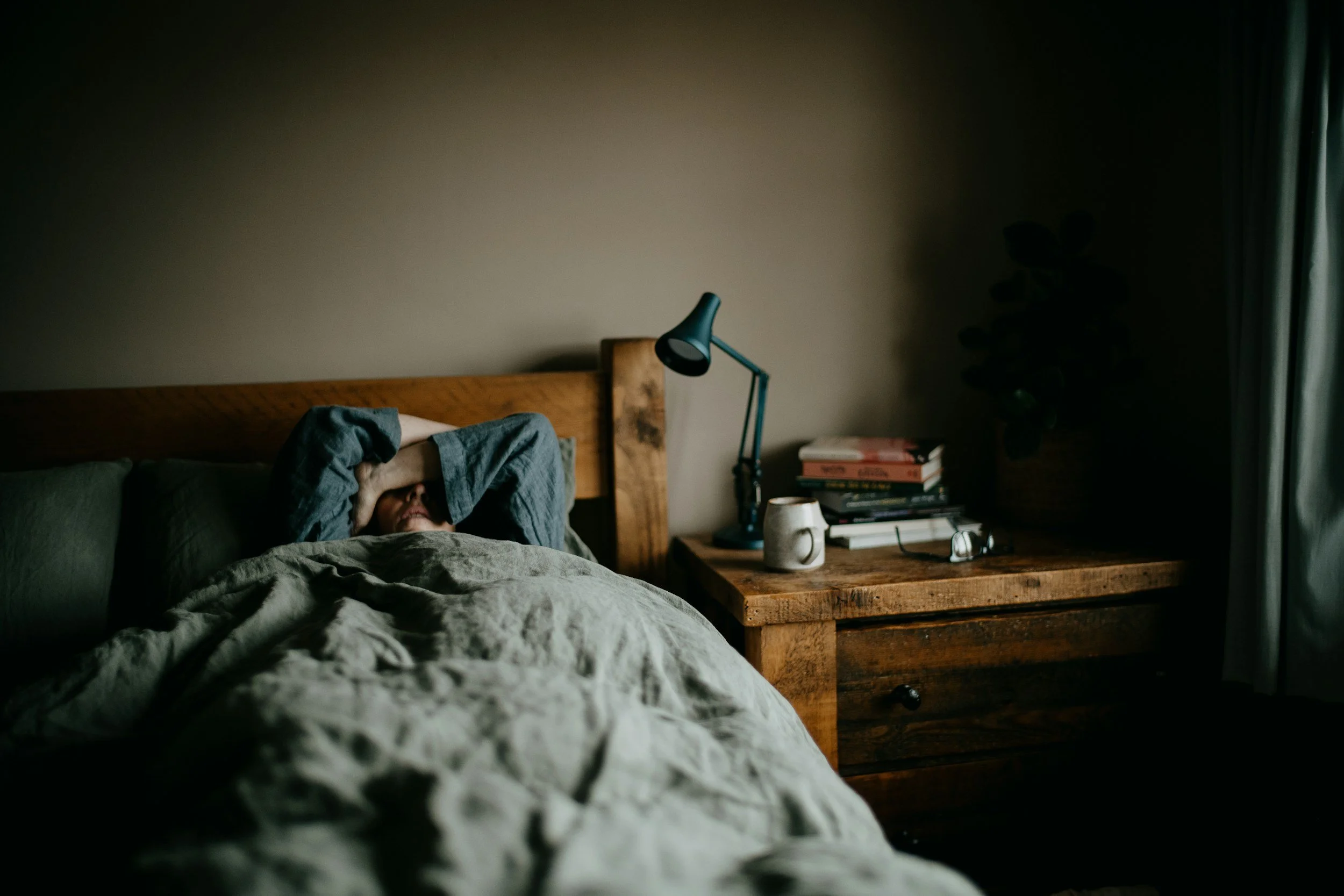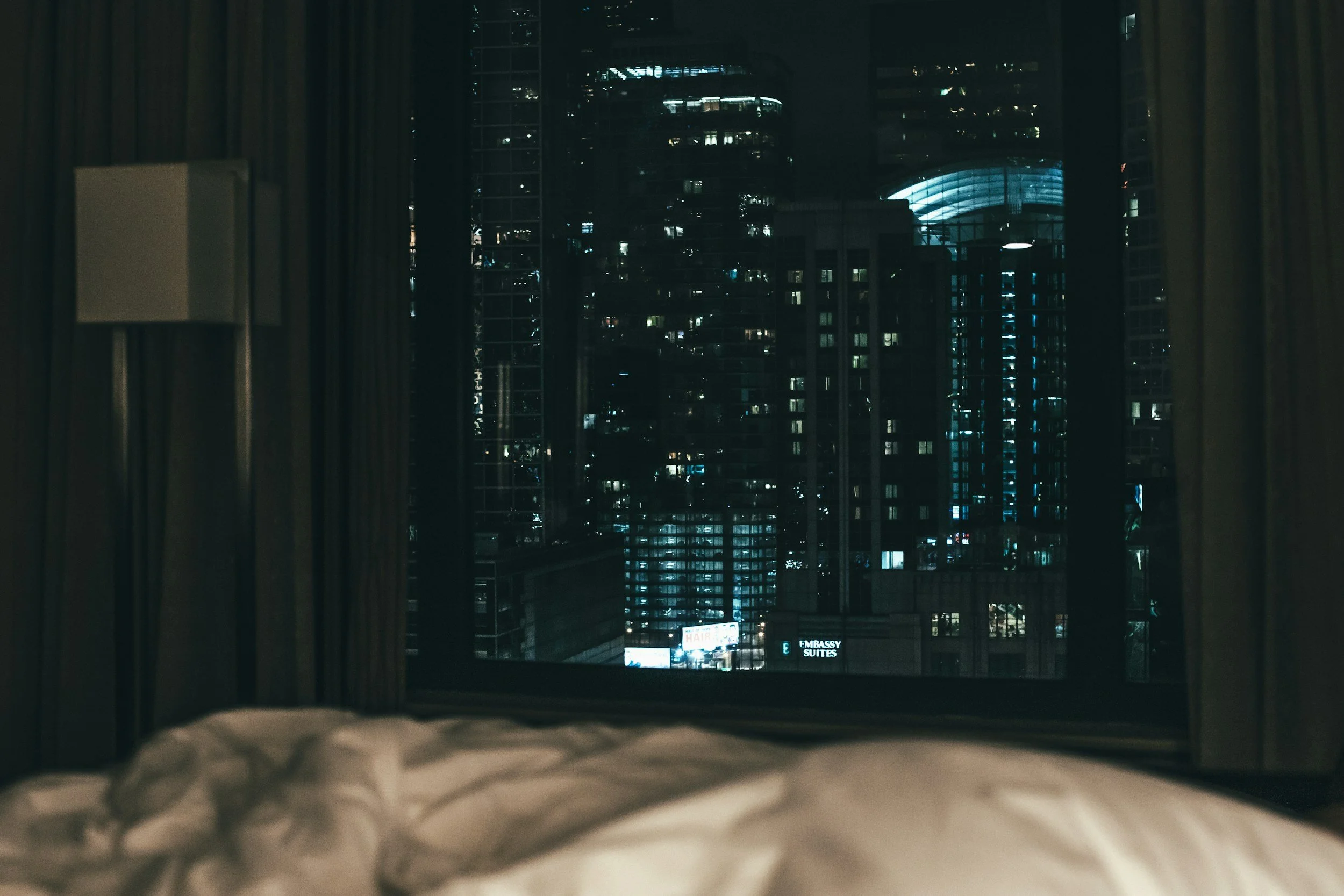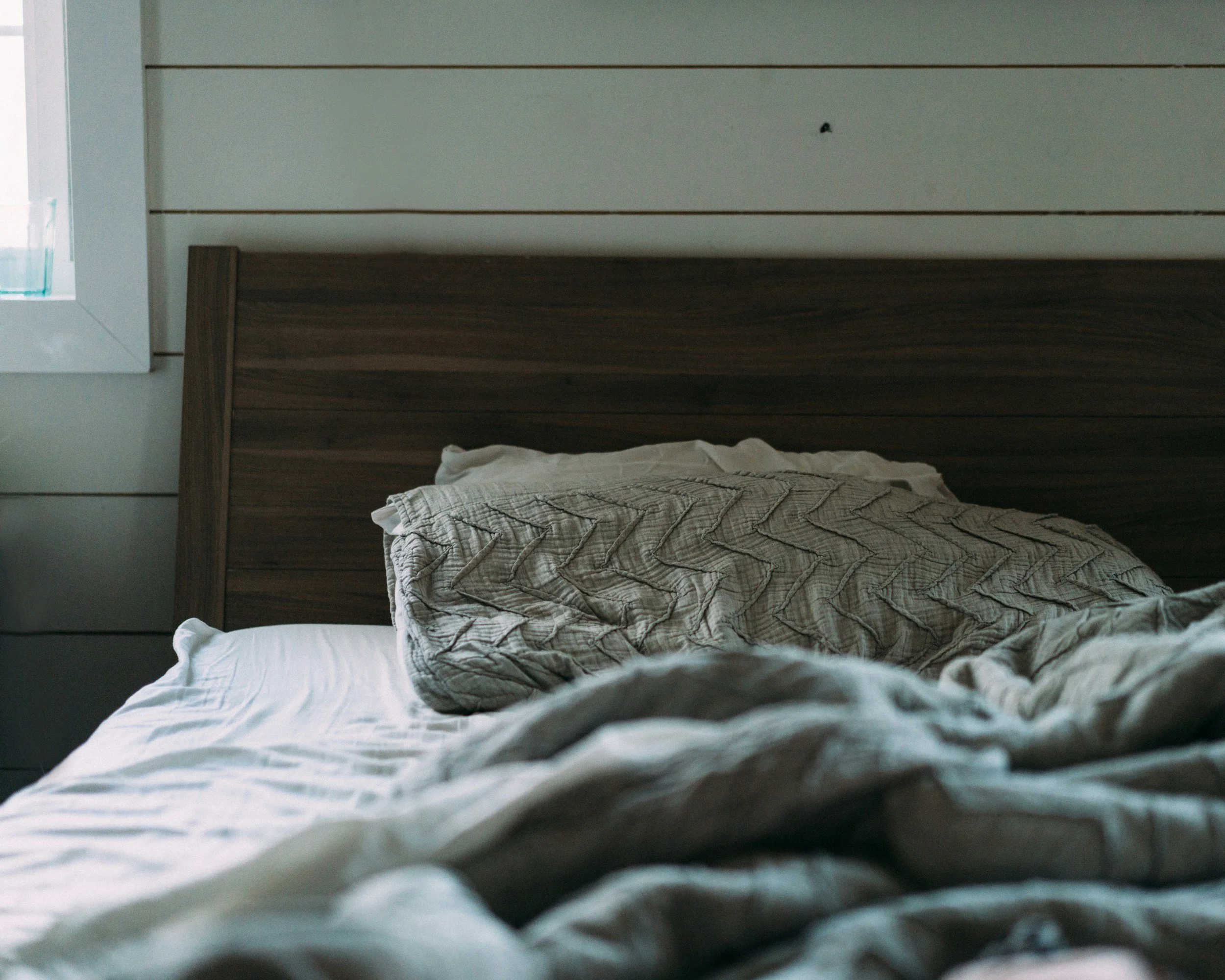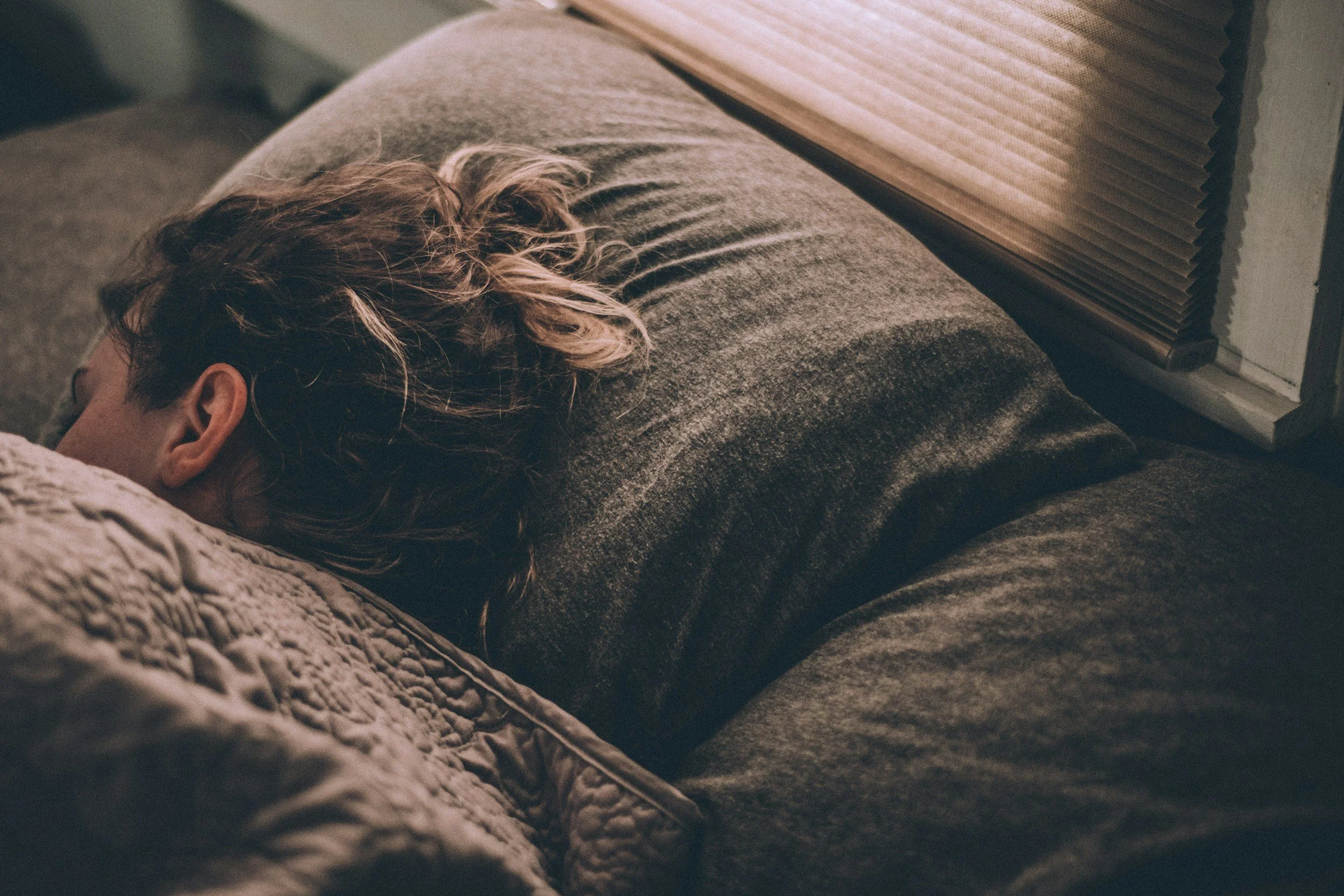What Causes Insomnia and How to Deal with Sleeplessness?
There are few experiences more painful than not being able to fall asleep at night, staring at the clock and wishing desperately that you could overcome sleeplessness and insomnia.
As the minutes tick by, the frustration increases, and the more frustrated you become, the more illusive sleep is. This cycle can feel like a form of modern day torture, and it’s one that is familiar to most of us.
Perhaps you’ve experienced it the night before an exam or an important event, or maybe you regularly get the "Sunday scaries" as you feel overwhelmed by the start of a new week. Maybe you are reading this blog right now because you are struggling to fall asleep.
If you struggle with sleep consistently or even periodically, this blog is for you.
We’re going to break down what sleep problems are, what insomnia is, and what you can do about it so that the next time you find yourself unable to sleep and thinking to yourself "WHAT THE…!" you have tools to help you get some rest.
What Are Sleep Problems?
Sleep is an integral aspect of our mental and physical health. Persistent disrupted sleep is associated with a number of adverse mental health outcomes, including depression, worsening anxiety, substance use issues, and even suicidal thoughts and behaviors.
Most of us are aware that 7 to 9 hours of sleep per night is generally recommended for optimal health.
Falling short on this quota creates problems for most us, but it can particularly impact those who are working to recover from mental health challenges, life transitions or stressors. The reason being that lack of sleep can actually heighten and fuel experiences of dysregulation and distress. It shortens our fuses and exacerbates our challenges.
Despite most of us recognizing that sleep is important, it has been estimated that over one-third of Canadians struggle to get the recommended amount of shuteye per night. That is a lot of underslept Canadians! We can relate; our own experiences with young children taught us just how challenging life can be without getting adequate rest. By the way, to any new parents reading the post, it does get better, hang in there.
Among those who experience sleep difficulties, a smaller, but still significant portion will contend with more persistent and ongoing problems. This is where insomnia comes into play.
Defining Insomnia
So what is insomnia? Well it is a Bonafede medical condition and a recognized mental disorder which is characterized by persistent difficulties falling or staying asleep despite having adequate opportunity to do so.
Insomnia is far worse than just a bad night's rest; it's a significant health concern which if left untreated can negatively affect a person's life, functioning and wellbeing.
There are two types of insomnia:
Acute insomnia, the short-term type, is common and can last from a few days to a few weeks. It is often triggered by stress or changes in routine.
When sleep difficulties occur at least three nights a week for three months or longer, it is considered chronic insomnia.
Common symptoms of acute and chronic insomnia include difficulty falling asleep, waking up during the night and not being able to fall asleep, waking up too early, and not feeling rested.
This can lead to daytime fatigue or sleepiness, irritability or mood disturbances, and difficulty concentrating. It can also make life a lot less enjoyable and can leave you feeling empty, disconnected and detached.
What Causes Insomnia and Sleeplessness?
You might find yourself asking, “Why can’t I sleep at night even though I’m tired?” The cause of insomnia is often a complex interplay of factors; factors which contribute to the onset of sleep problems and their persistence.
Psychological factors like stress, anxiety, and depression can play a significant role. In fact, persistent sleep disruption is a common symptom of depression.
Lifestyle factors are also a crucial contributor to insomnia and sleeplessness. An irregular sleep schedule, which shift workers have to deal with, can be a major barrier to a healthy sleep routine. Excessive caffeine and alcohol consumption, nicotine use, late-night meals, a lack of physical activity, and exposure to technology or stimulating activities before bed can all interfere with sleep and contribute to insomnia.
Medical conditions such as chronic pain, respiratory problems (like sleep apnea), and thyroid issues can also disrupt your ability to sleep well at night.
And let's not forget environmental factors: noise, light, and temperature all play a part. For example, trying to sleep in a busy urban area in the middle of summer without air conditioning – doesn’t sound very peaceful, does it?
Regardless of the initial cause, if you find yourself caught in a pattern of insomnia and sleeplessness, it can be a tough cycle to break.
This becomes especially difficult when the challenges of sleeping lead to more anxiety about trying to sleep. This creates negative expectations about bedtime, which can lead to dread before you even get into bed, and fuels persistent worries about not getting enough rest. These experiences can unfortunately cause acute instances of insomnia to become more chronic, as our worries and anxieties about sleep become self-fulfilling prophecies, resulting in consistently disrupted sleep patterns.
But here's the good news: even though breaking out of an insomnia pattern requires work, it can be done and there are well-studied and effective steps you can take right now to improve your relationship with sleep.
The key is that it's going to take some consistent effort, and as with most things worthwhile in life, there aren't many shortcuts to truly improving your sleep.
Tips and Strategies for Overcoming Your Sleep Challenges
Unfortunately, there’s not one magical “insomnia cure.” Effectively managing insomnia often involves making multiple changes – combining lifestyle adjustments, optimizing our sleeping environment, and shifting our relationship with sleep itself.
Mastering Your Sleep Environment and Routine
First things first, let's talk about your "sleep hygiene." This isn't about how clean your sheets are (though fresh sheets never hurt!). It's about establishing a consistent routine and setting yourself up for success. Make it a point to go to bed and wake up around the same time every day, even on weekends. If you have had young children, you know that routine is key when it comes to bed time, and as adults we aren’t that much different.
In the evening, try to wind down with a relaxing routine – maybe reading a book, taking a warm bath or shower, listening to calm music or doing a meditation. Try to keep this routine consistent and stay away from technology as best as you can.
Then, there’s your actual sleep space. You want it to be a haven for sleep. Aim for it to be dark, quiet, and cool. Try to restrict activities in your bedroom primarily to sleep and intimacy. That means no working, no intense TV watching, and ideally, no scrolling on your phone right before bed. Your brain needs to associate your bed with sleep, not with stress or stimulation.
Daytime Habits that Impact Your Sleep at Night
What you do during the day directly impacts how well you sleep at night.
Limiting caffeine and alcohol intake, especially caffeine in the afternoon and evening, is crucial. Both can stick around in your system longer than you might think and mess with your sleep cycle. Also, try to avoid heavy meals too close to bedtime; your body will be too busy digesting instead of winding down.
Regular exercise is helpful for good sleep, helping you feel tired at night. But here's the catch: try to finish your workouts a few hours before you plan to hit the hay. Getting your heart rate up too close to bedtime can actually make it harder to fall asleep.
And finally, if you're a napper, that's fine but keep them short and sweet, typically no more than 20-30 minutes, and ideally not too late in the day. Naps that are too long or happen too late can steal hours from your nighttime sleep, so if you are caught in a pattern of trying to catch up on sleep via naps, try to break this. We know it isn’t easy to do, but we have seen first hand with our clients how oversleeping during the day can result in highly disorganized sleep routines.
Retraining Your Brain for Better Sleep: Challenging Unhelpful Thoughts that are Keeping You Awake at Night:
So, we've covered your sleep environment and habits. But what about the mental battle when you're trying to sleep? Those anxious thoughts can look like, "What if I don't fall asleep?" or "I'll be a zombie tomorrow." These unhelpful thoughts actually make it harder to sleep by ramping up your anxiety.
The truth is, the more pressure we put on ourselves to sleep, the more elusive it becomes. This will sound a bit backwards, especially after all the emphasis we've put on how important sleep is in this blog. However, we can learn to engage with unhelpful thoughts about sleep more effectively and this can improve our rest.
Here’s how you can start tackling those unhelpful thoughts:
Catch the thought: The first step is simply noticing when those unhelpful thoughts pop into your head. Try to track them without judgment. Just becoming aware of them gives you an opportunity to start thinking differently.
Question the thought: Once you've identified a thought, ask yourself: "Is this thought truly helpful right now?" or "Is this 100% true?" Often, our thoughts about sleep are skewed or exaggerated, creating more anxiety and, ultimately, less sleep. For example, you might catch yourself thinking, “Am I ever going to be able to sleep?” or “If I don’t sleep tonight, I’m totally screwed tomorrow.”
Reframe the thought: Instead of getting stuck on "I'll never sleep," try shifting to something like, "I'm restless right now, but I've slept before, and I will again.” Or, "Even if my sleep isn't perfect, I can manage tomorrow." You might even tell yourself, “I’ve done hard things before with just a few hours of sleep, and I can handle tomorrow with less.”
Practice acceptance: Sometimes, the most powerful thing you can do is simply accept that you're having trouble sleeping at that moment, without getting upset about it. Paradoxically, letting go of the fight can sometimes bring sleep closer. You can't force sleep, but you can control your breathing, practice relaxation techniques, and maintain good sleep hygiene. Shifting your focus this way can reduce feelings of helplessness, which in turn can reduce anxiety and distress.
This process takes practice, just like learning any new skill. But by actively challenging those unhelpful thoughts keeping you awake, you can dial down the anxiety spiral and create a more peaceful mental space for sleep.
Waking Up and Can't Go Back to Sleep? Try This!
Okay, so what should you do if you keep waking up in the middle of the night, or just can't seem to fall asleep at all? This is a common question we hear from clients dealing with sleep issues. The steps we're about to outline aren't always easy, but this is definitely one of those "trust the process" situations.
First off, try to avoid associating your bed with being awake and frustrated. Staying in bed and tossing and turning reinforces the idea that your bed or bedroom is a place for stress and wakefulness, rather than a cozy spot for sleep.
So, if you find yourself wide awake:
Do something calming: Get out of bed and go to another room. Find a quiet, low-stimulation activity to do. Think gentle and relaxing, like:
Reading a good old-fashioned physical book (no screens, no social media and definitely no work emails)
Listening to some calm music or a peaceful podcast
Doing some gentle stretching or deep breathing exercises
Knitting or another simple, repetitive task
Meditating
Keep it dim: Avoid bright lights at all costs. Light tells your brain it's daytime and time to be alert.
Return to bed when you're sleepy: Only head back to bed when you genuinely feel your eyes getting heavy, not just because you think you "should" be sleeping.
Avoid stimulating activities: This means no checking your phone, watching TV or working. You really want to steer clear of anything that could make you more alert or anxious.
It will take some practice, but utilizing these skills on a consistent basis can help you reduce the amount of time that it takes you to fall asleep and less time staring at the clock in bed.
In Summary
Sleep problems and insomnia are pesky and sometimes really big problems. Prioritizing sleep is often an important first step to improving your mental health; especially if this has been an ongoing area of concern. By understanding the nature of your sleep problem, recognizing potential causes, and implementing the strategies we have outlined, you can gain a better relationship with your sleep. This can make your hours awake much more enjoyable and it can make tolerating stressors that much easier to overcome.
When to Seek Professional Services
In some cases these techniques will be enough to use on your own to improve your sleep. Other times, professional support is needed.
If you've been struggling with sleep for a while and nothing seems to work, we strongly recommend talking to a professional. This can include speaking with a psychologist, therapist or physician.
For those in Calgary and the Alberta area, feel free to reach out today to book a free 15-minute consultation to learn how we can help you to get a better night's rest.






